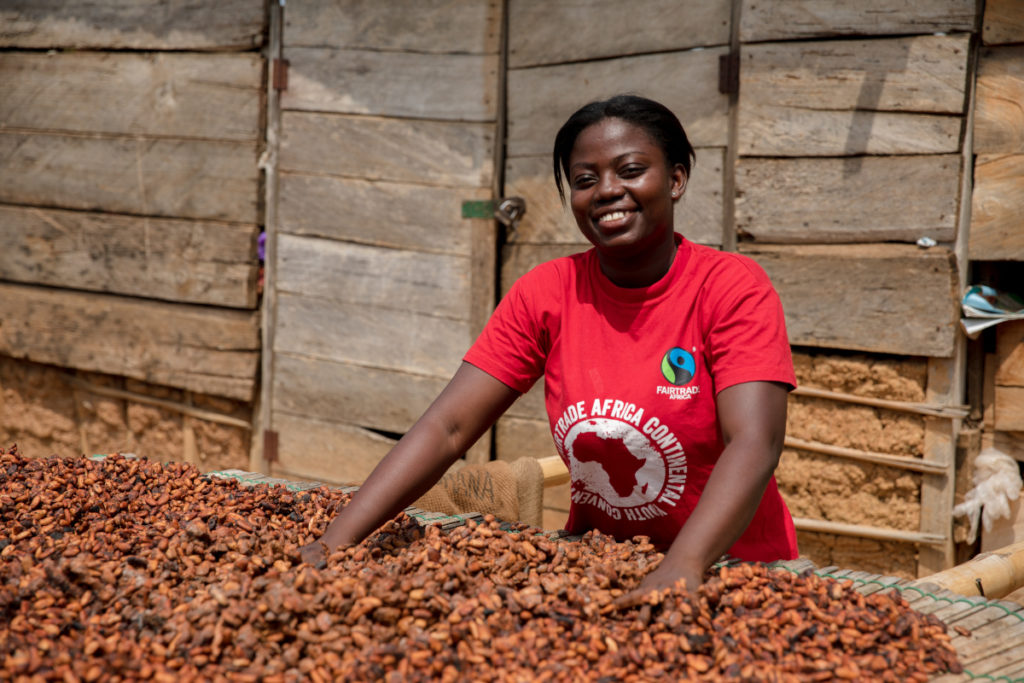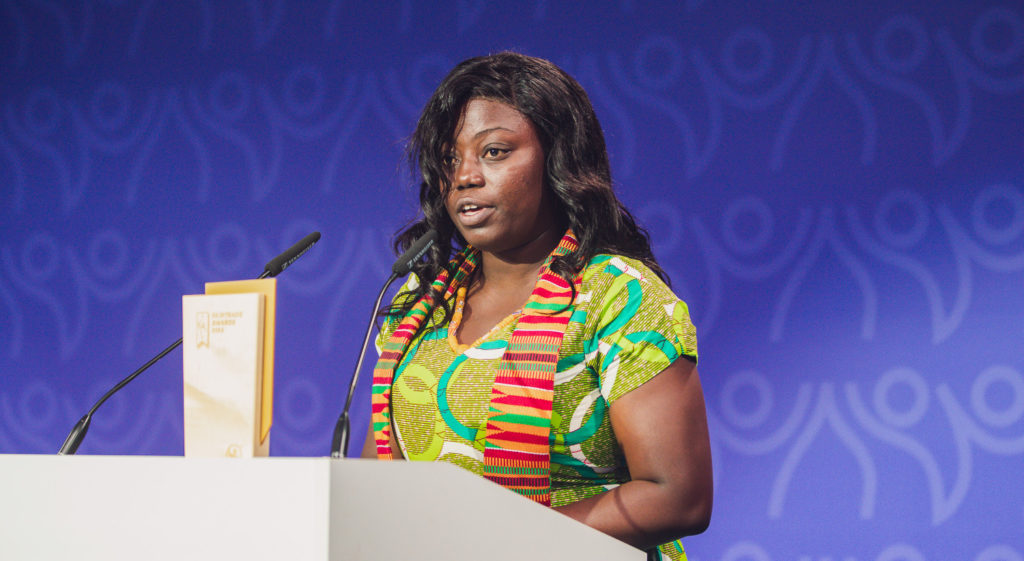Fairtrade ambassador Deborah Osei-Mensah tells us how Fairtrade farmers are tackling climate change – and what world leaders need to do.
“Farmers are on the frontline of the climate crisis. They are crying but no one is listening to them,” says Ghanaian Fairtrade ambassador Deborah Osei-Mensah.
She was speaking to the Fairtrade Foundation before the COP27 climate summit began in Egypt.
“At the end everyone is losing. It isn’t just the farmers: we won’t have the chocolate, the coffee, the fruit and other things that we wish to enjoy every day.”
Facing unfairness
Thanks to the impact of the climate crisis, farming is an increasingly uncertain career. But farmers in countries disadvantaged by unfair global trade structures have long struggled to provide for their families.
“I was born into farming, my mum and dad were farmers and still are,” Deborah says.
I saw my dad harvest a lot of cocoa but he was still struggling to get money, struggling to pay for household costs.
“Before and after school I helped out. But one thing I realised: I saw my dad harvest a lot of cocoa but he was still struggling to get money, struggling to pay for household costs, getting school fees was difficult, despite how hard he was working. So in my mind, farming wasn’t an option for me.”
Deborah finished school, went on to university and took part in national service.
Her turning point came by chance. She was working in the district of Asunafo and attended a meeting for a local Fairtrade co-operative.
The way the farmers talked about farm management, practices, harvesting, I realised then there is hope. I can do something
“These farmers were different from the farmers that I knew. That was the first time I learned about certification.
“I got to know about Fairtrade, the Fairtrade Premium and what they used it for. The way the farmers talked about farm management, practices, harvesting, I realised then there is hope. I can do something.”
More money, more power, more food security
“If cocoa is not profitable for farmers, they will look to other sources to give them the income they need. They will move to industrialisation – farmers [might sell] land to mines, to manufacturers.
“But once they are getting fair prices, farmers will protect their farm.
“Farmers use the Fairtrade Premium to contribute to their communities. If they feel they are being supported they can invest in the future of food security.”

A future for farming
“Fairtrade is what motivates me to work in farming.
“There is hope if there is certification. Certified farmers receive the Fairtrade Premium, the Minimum Price, but it also empowers farmers to speak for themselves.
I have hope because farmers are becoming stronger than they used to be.
“I have hope because farmers are becoming stronger than they used to be. In Ghana my co-operative and others have started forming an association, so farmers have a more powerful voice to advocate for change.
“I see a future for farming where farmers are more powerful and they can call on the government to do or make policies that will help them, support their farm and fight for their livelihoods. So there is still hope.”
No time to waste
Deborah says that shoppers across the world can help.
“For consumers, I want each and every one to be more conscious of the products we buy.
“Together, let’s make the future fair. Let’s buy more Fairtrade. Let’s advocate for producers across the globe to make sure we have a fair future for each and every one.”
There is no time to waste. Climate change is happening now.
She also has strong words for the world leaders at the COP27 climate summit. “There is no time to waste. Climate change is happening now.
“If there is action to be done, it has to be done now. If you have to save the world, to save food, it has to be done now.
“Political leaders should put their pen down and start acting.
“We have to save the future now.”
See Deborah speak at COP27
Join us in watching Deborah and other Fairtrade ambassadors speak at COP27 live-streamed events.
